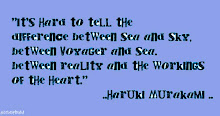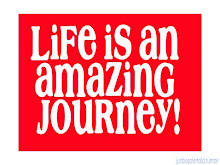I can say that I'm one of those people who believe in karma. Somehow those 'karma' concepts can really prevent me on doing something bad. When I'm about to do something I always think what will happen next if I'm doing certain things. If it can cause some harms or bad effect to other people, then I'm not gonna do it. But if I do those good nice things, I can always do it without think it over again. But when I'm reading the article below, it gives me a deeper insight about what can be considered as good and bad. Some people will say that one thing is good but on the other hand, different people will perceive it as a bad thing. So, who can be the judge on this kind of thing? Now it gets me a bit confuse. I don't think there are any rules about karma, about good and bad things. I really think that it's all about perception. But I believe that whatever it is that you do, when you do things with all your heart, kindness will grow in your heart.
So, here's one article that was written by dynamic Intuitive Counselor, teacher and healer, Kari Samuels. I hope by reading this, we all can get the idea of what's consider good or bad and what karma really means to us and to other people.
Karma, Balance, and Why Being “Nice” Isn’t Always Good
If you ask most people about what karma is, they will most likely respond with references to “good” and “bad” deeds. Most people strive to be the best they can be for themselves and others. We want to be good. And yet, most of the clients who I see in my intuitive counseling sessions have to learn how to be less “good” to other people, and better to themselves. After all, “good” and “bad” are just self-imposed judgments about what we perceive as being integrated spiritual people. In reality, there is no judgment in the Universe about right and wrong, or bad and good.
Perhaps a more appropriate way to understand karma is viewing it as a scale. If you think of all relationships of having a measure of energy, when you are giving and receiving energy in equal measure, the scales are balanced. This is not to say you need to keep track of every favor you did for people, or what kind of gifts you bought them, etc. Rather, you might want to evaluate whether your relationships are in a reciprocal energy exchange.
If you are consistently in relationships where you are doing all the giving, or not standing up for yourself, or expressing your needs and feeling, each time you do this you reinforce that energy pattern in your aura. This frequency will attract more of the same energy frequency until you consciously clear this pattern and make adjustments to take back your power.
This might be confusing for those of you who feel you are being consistently “good” and “nice” to other people. Why are people not always nice in return? Why is this not mirrored back to us? The reason for this is that people are treating us how we are acting towards ourselves. If you are consistently putting other people’s needs before yours, this is what is reflected back to you. If it’s more important for you to protect other people’s feelings than honoring yours, other people will disregard your feelings as well. The good news is, when you start treating yourself as priority one, other people will respond in kind!
Relationships are a mirror for our internal life. The relationships and circumstances in your life will show you where you need to clear an energy pattern .If you consistently find yourself attracting the same kind of relationships, romantic or otherwise, you can ask how you are treating yourself the way others are treating you. For example, if the people around you, at work or at home, seem to be hard on you, you might want to examine how you are hard on yourself. As you treat yourself with more kindness, you will find that other people will treat you more kindly as well.
Oftentimes, we think we are doing the “right” thing by automatically forgiving someone who has wronged us, or by turning the other cheek to people who are treating us poorly and allowing them to dump their negative energy on us. One interpretation of “turning the other cheek” that might be beneficial is not taking another person’s actions personally when they act poorly towards you, therefore not engaging in the drama. So instead of taking on a person’s negativity and being “nice” about it, you can choose to view their negativity as a reflection of themselves rather than you, view that person with compassion, and disengage from that dynamic by choosing self-respect and self-care. Try that and see how that works for you!
Your relationship to yourself is the most important relationship in the world. So begin right now, loving yourself more and more. Honor your feelings and your needs, and have compassion towards yourself at all times. Now that’s what I call good karma!
(source by Kari Samuels from selfgrowth.com-images via justbesplendid.tumblr)





















No comments:
Post a Comment